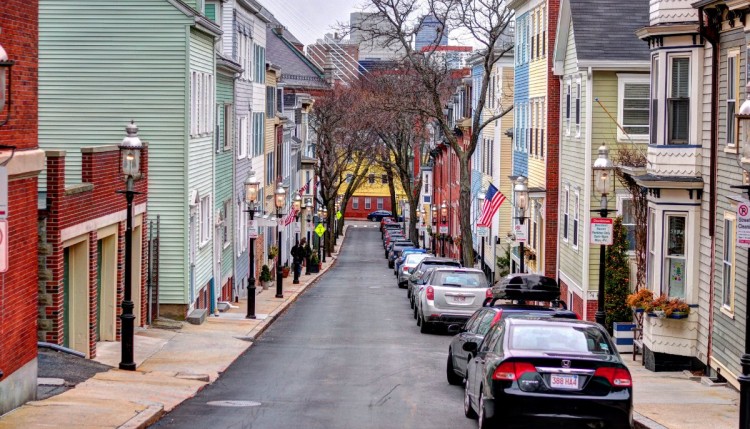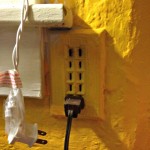There are plenty of bad design choices out there. All you have to do is gawk at a site like Bad MLS Photos or even just walk around Quincy --…

Should you buy a house, condo, or multi-family?
You’re finally ready to buy a home — there’s just one thing: “Home” can mean a lot of different things to different people.
Do you enjoy apartment living, with perks like professional landscaping and snow removal? Have you always dreamed of having your own house with a front yard, driveway, and picket fence? Does the idea of someone else paying a chunk of your mortgage each month sound good?
Choosing between a condo, single-family, or multi-family comes down to a lot of factors, from your own wants and expectations to things outside your control, like price and supply. For example, condos are typically your cheapest option, making them a good entry-level purchase — and in some cases, they’re your only option, like in a dense downtown neighborhood.
We were pretty open-minded when we started our own home search, and viewed all three types of housing units — from just-out-of-reach condos in Jamaica Plain, to the sweet single-family house that broke our hearts, to the Quincy two-family we eventually purchased.
Here we’ll break down each property type, including its advantages and disadvantages.
Condo
A condominium is typically the least expensive type of property you can buy, all else being equal. This in itself makes a condo an attractive option for your first-ever real estate purchase.
But another reason condos are great for first-time buyers is that, in many ways, it’s the easiest transition from renting. Depending on your building and the association, your monthly condo fee might include things like snow removal, landscaping services, even heat and hot water. Those are all things most homeowners have to deal with and most renters do not; by buying a condo, you’re effectively threading a loophole.
That fee might also grant you access to nice community perks, such as a fitness center, pool, or laundry room. And another big draw for first-timers: Big, costly repairs, such as a new roof or deck, are typically split up among the building’s owners.
So while an owner of a single-family has to pay $10,000 for a new roof, if you live in a four-unit building, you may only be on the hook for $2,500 (or even less — your share of the bill is often determined by your square footage).
Still, there are some definite drawbacks to condo ownership. For one thing — and this really nagged at me when we came close to putting an offer on a couple condos — you don’t own any land; you just own the cubic feet within your building. For some reason that really irked me!
You’ll also be on the hook for a condo fee each month. This doesn’t have to be a bad thing… if it’s well managed and you’re getting services you value in exchange for the fee.
For instance, a $250/month fee that includes your water, insurance, parking, landscaping, snow removal, and other maintenance may be a fair deal, as long as the balance is managed prudently and saved for common-area repairs and big outlays.
But paying $900/month — and they do get that high — for a state-of-the-art gym, doorman, and pool would be a waste of money if you’re not concerned with those things. That relentless monthly expense does not build equity the way your mortgage does, and you can be sure it’s not going to drop over time.
Finally, there’s the condo association. In a huge building with 50+ apartments, this tends to be a faceless property management firm that resembles an institutional landlord, for better or worse.
But in a small building — like so many Boston three-deckers — you will need to work very closely and stay on good terms with the other owners.
Unlike a single-family homeowner, who is truly master of his domain, you might have to attend monthly meetings, fight for the simple right to make improvements to your unit, or plead your case to be reimbursed for common-area work you performed or paid for. And if you don’t get along with the other owners, this can be an ongoing source of great stress.
Single-family house
It’s the American Dream, isn’t it? Chances are, you grew up in one. And for many people, a single-family house isn’t just the dream — it’s the only option that will ever truly feel like home to them.
There are a lot of advantages to owning a house vs. a condo. For one, you own the land. Even if your house gets blown to Oz in a vicious tornado, you still have a place to live — just pitch a tent on your yard. What’s more, in states like Massachusetts, you own that plot of land — and any goodies within it — to the center of the earth. The center of the earth!
If that sounds pleasantly medieval, the faire doesn’t stop there: You are the king of your castle. The yard is yours to enjoy. You won’t have to jockey for parking in your own driveway. If you don’t like the fence out front, just get rid of it. And if you want to paint the house purple, you don’t need to get approval from your condo association or negotiate who’ll pay how much of it. Just get your freak on.
(An important exception to note is if you buy into one of those godawful homeowner associations on some bland, lifeless, cookie-cutter cul-de-sac. Then you may be restricted by all kinds of draconian rules — you may not be able to hang a clothesline, or paint your deck a certain color, or even install a basketball hoop! Don’t fall into this trap!)
Because single-family homes are the most popular type of property, they also hold their resale value well. Condos — well, everyone knows someone who had trouble unloading a condo in a recession at some point. That’s not necessarily true in a dense city like Boston, where most of the housing stock — and indeed many of the very best properties — are condos. But in smaller cities, suburbs, and exurbs, a single-family home is usually a safer investment.
A single-family house is bound to be among your most expensive options, however. While a multi-family will probably cost more at purchase, you’ll recoup much of that extra expense in rental income. And unlike with a condo, you must pay for everything on your own, from repairs and maintenance to taxes and water bills.
Multi-family house
We own a two-family house, and not because that’s what we wanted; it was just the only way we could afford to buy into our neighborhood. Maybe that sounds like an underhanded compliment to multi-family houses, but I’ll be honest: Owning a two-family is actually awesome.
For the first six years we lived here, our tenants’ rent paid for about half our mortgage. That’s thousands and thousands of dollars in equity we built up without having to pay for it ourselves, and we were able to buy more house than we initially qualified for because of that additional income.
And despite buying more house, our effective monthly housing payment was far lower than if we’d bought even a much cheaper single family, because of that steady monthly rental income. And now that we’re renting it out as a furnished vacation rental? The income pretty much pays our entire mortgage.
Yes, you read that correctly. And yes, that is INSANE!
Our real estate agent was equally enthusiastic. He bought his first two-family in the early ’80s, and now owns nine of them — renting out every unit but for the one he and his family still call home. It’s an honest-to-goodness real estate empire that he built slowly and steadily thanks to incoming rents, growing equity, and a lot of hustle and hard work.
Because yes, owning a two- or three-family is a TON of work — even if you don’t rent it out.
Why? Because there are two (or three) of everything. That’s twice as many opportunities for things to break — expensive things like boilers, hot water heaters, stoves, and water pipes. While a condo owner may only have to worry about paying for one-third of a deck, you have to worry about paying for two of them.
And as a landlord, you are responsible for everything. When you own a single family and a blizzard dumps two feet of snow on a Saturday, you can just stay in your pajamas all day and say “Screw it, I’ll shovel tomorrow.” If you’re the landlord? You’re responsible for clearing that snow; your tenants may have to work on Saturdays. So suit up, lazy bones, and get out in the cold!
You can also expect constant headaches. Even with great tenants, unless you pay a property management firm to handle the day-to-day maintenance for you (which is certainly an option, but will run you about 10% of the rent or more), you are simply bound to receive poorly timed text messages or phone calls with one problem or another, from a clogged toilet on the 4th of July to a broken water heater in December. And that’s not to say anything about tenants who don’t pay their rent or don’t respect your property.
By definition, you also have to live in close proximity to others — you’re basically sharing your home, yard, and driveway with someone else. Some people just can’t handle this, and it does have its annoyances. But we actually found it to be extremely comforting — and especially helpful in our transition from renting. We’d been living in a Back Bay studio for three years and the idea of an otherwise empty, eerily quiet house with no one else around simply freaked us out!
And, let’s not forget: There are a lot of legal landmines that come with being a landlord. However, if you live in your two- or three-family building, you’re exempted from some of them.
Finally, one last benefit is the ability to write off some home improvements and maintenance costs if you itemize your taxes. (And as a new homeowner, with lots of mortgage interest, you absolutely should.)
The amount you can write off is determined by square footage. So if your rental unit(s) accounts for, say 40% of the building’s square footage, you can write off 40% of the cost of a snowplow service, landscaping, plumbing, or even a new roof — as long as it affects the entire building and not just your unit.
And if you make improvements to the rental unit itself, such as replacement windows or a new boiler, you can write off the entire cost.
In the end, if you don’t mind the headaches of being a landlord and the idea of sharing your home with others, I think a multi-family is incredibly advantageous. But there’s a different perfect home out there for everyone — what type would yours be?



